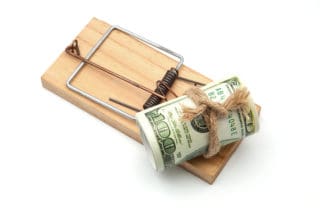
You might have noticed in recent years that the prevalence of payday loan storefronts has started to wane. According to the most recent information from the Missouri Division of Finance, since 2015 approximately one-third of active payday loan businesses in the state have closed.
Even better, over the past decade the number has dropped by half from more than 1,200 to just more than 600 currently active. Missouri is not alone in this reduction of predatory lenders. Among others Utah, Ohio and Colorado have all seen similar reductions. While the levels of decline vary by state, the payday loan industry is certainly weaker than it has been in the past, which is a very good thing.
I would like to believe consumers making wiser financial decisions has been the primary factor in these brick-and-mortar lenders locking their doors. However, recent information leads me to believe these store closings have less to do with shrinking demand for subprime products and more to do with governmental attempts to slow the payday loan industry. Over the past several years many states have introduced legislation and regulatory changes designed to protect consumers and harm these short-term lenders.
In an attempt to avoid these new state and federal regulations, high-interest loan retailers have shifted their base of operations away from Main Street and onto the information superhighway. As a result, a new industry of subprime loans referred to as online installment loans has exploded. According to Bloomberg, Elevate Inc, a leading provider of these loans, has seen revenue grow by approximately 1,000% over the past five years.
Unlike payday loans, which typically consist of small loans to be paid in a lump sum over a short time period, these loans tend to be larger and spread over payments anywhere from four to 60 months. This style of loan allows its providers to avoid many regulatory interest rate caps that apply only to smaller payday style loans. With a quick visit to the website of another provider, Enova, individuals in Missouri can obtain loans ranging from $1,000 to $10,000 at rates anywhere from 34% to 155% APR.
As a disciple of personal finance guru Dave Ramsey’s approach to debt, seeing the harm being done by loans like these makes my heart hurt. At the same time however, the libertarian side of me says people should be allowed to make bad decisions as long as they’re doing it knowingly. My hope through this article is to convince those in my small sphere of influence who utilize this type of subprime loan to consider a different strategy.
Instead, build up an emergency fund of at least $1,000 or preferably three to six months of your monthly expenses. By doing this, the chances of you finding yourself in a desperate enough state where you see no option but to work with these types of loan sharks is greatly reduced.
If right now you’re living paycheck to paycheck this task can seem impossible. However, I personally have coached dozens if not hundreds of people to do this very thing. While I’ll be the first to admit it’s not easy, it is possible. Be forewarned: It will require some sacrifice and a lot of discipline. But the peace of mind you will feel having cash ready if the unexpected happens is worth the initial pain.
